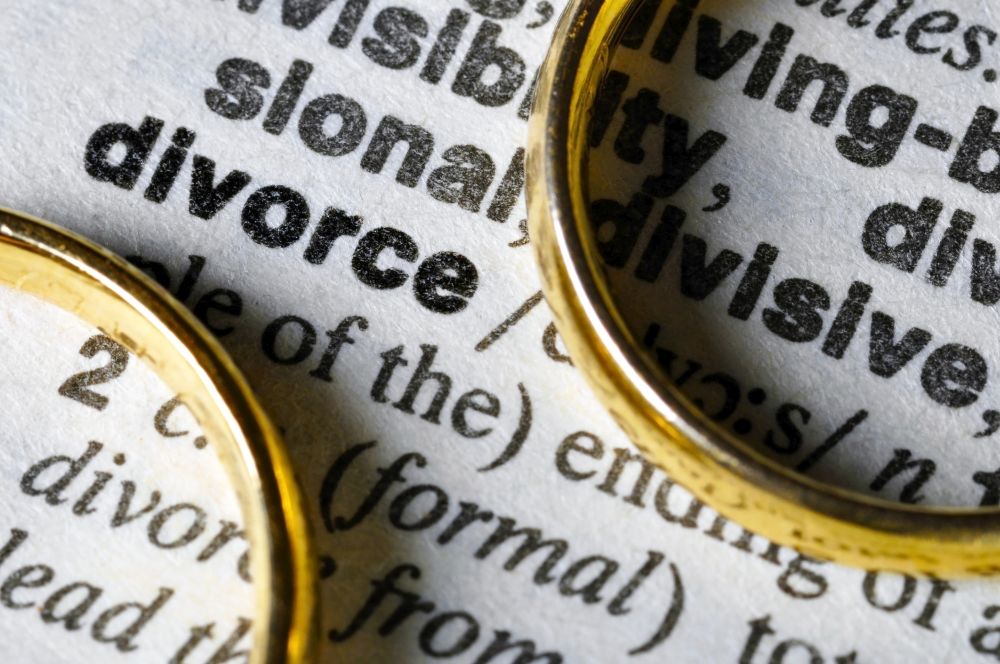Warnings raised over no-fault divorce pension losses for women
New divorce laws could combine with coronavirus stress and result in pension losses, experts say
9th June 2020 12:47
by Brean Horne from interactive investor
New divorce laws could combine with coronavirus stress and result in pension losses, experts say

More women could lose their pension cash if DIY no-fault divorces increase during the pandemic, experts warn.
The Divorce, Dissolution and Separation Bill, which will become law, lets married couples in England and Wales get a divorce by simply saying their marriage has broken down.
Currently divorce is only possible due to infidelity, unreasonable behaviour, your spouse leaving you at least two years previously or being separated for at least two years.
While the legislation will overhaul the UK’s archaic divorce laws, there are fears the timing of the Government’s plans could lead to women being left worse off.
This is because couples with emotional stress worsened by the coronavirus pandemic may rush into a divorce and miss out on important financial assets such as pension benefits, according to Quilter.
Women are more likely to lose out on pension cash during a divorce than men. The average divorced woman has £26,100 in pension wealth, less than a third of the average divorced man, who holds £103,500, according to figures from the Pension Policy Institute.
This is because women often accumulate less wealth due to taking time out of work to care for children or older relatives, or through only working part time.
Many also do not know that they are entitled to a portion of their husband's private pension or underestimate the importance of dividing it.
Only 13% of 116,612 divorce filings in 2019 contained some sort of pension settlement order, data from the Family law Courts show.
Dividing pension assets in a divorce
When couples get a divorce, there are three different options for how they can divide pension assets between them.
The first is called offsetting, which allows pension assets to be matched by other assets the divorcing party has.
For example, one person may wish to stay in the marital home in lieu of receiving their ex-spouse’s pension rights.
Couples can also use a pension sharing order. This is a formal agreement to divide the pension assets at the time of divorce.
The courts will calculate the exact percentages each party receives.
The final option is known as earmarking. It allows the courts to make an order for all or part of the pension to be paid to a person when their former spouse starts to draw pension benefits.
Pension experts warn that couples need to get legal and professional advice before embarking upon divorce proceedings.
Jon Greer, head of retirement planning at Quilter, says: “Divorcees need to make sure they are receiving professional advice, both legal and financial, before, during and after any divorce case to ensure any settlement is fair for all parties involved. It should not be acceptable for pensions to be ignored, since they will have a major impact later in someone’s life.”
What is the Divorce, Dissolution and Separation Bill?
The Divorce, Dissolution and Separation Bill aims to make the legal process of getting a divorce less painful.
The new legislation means that couples only have to state their marriage has broken down to start divorce proceedings.
Couples can also apply for a joint divorce where the decision is mutual. The new bill also means divorces cannot be contested.
The Bill was approved in the House of Commons with a majority vote of 231 to 16. It has also been passed by the House of Lords.
MPs in favour of the Bill say that it will make separating “less traumatic".
This article was originally published in our sister magazine Moneywise, which ceased publication in August 2020.
These articles are provided for information purposes only. Occasionally, an opinion about whether to buy or sell a specific investment may be provided by third parties. The content is not intended to be a personal recommendation to buy or sell any financial instrument or product, or to adopt any investment strategy as it is not provided based on an assessment of your investing knowledge and experience, your financial situation or your investment objectives. The value of your investments, and the income derived from them, may go down as well as up. You may not get back all the money that you invest. The investments referred to in this article may not be suitable for all investors, and if in doubt, an investor should seek advice from a qualified investment adviser.
Full performance can be found on the company or index summary page on the interactive investor website. Simply click on the company's or index name highlighted in the article.